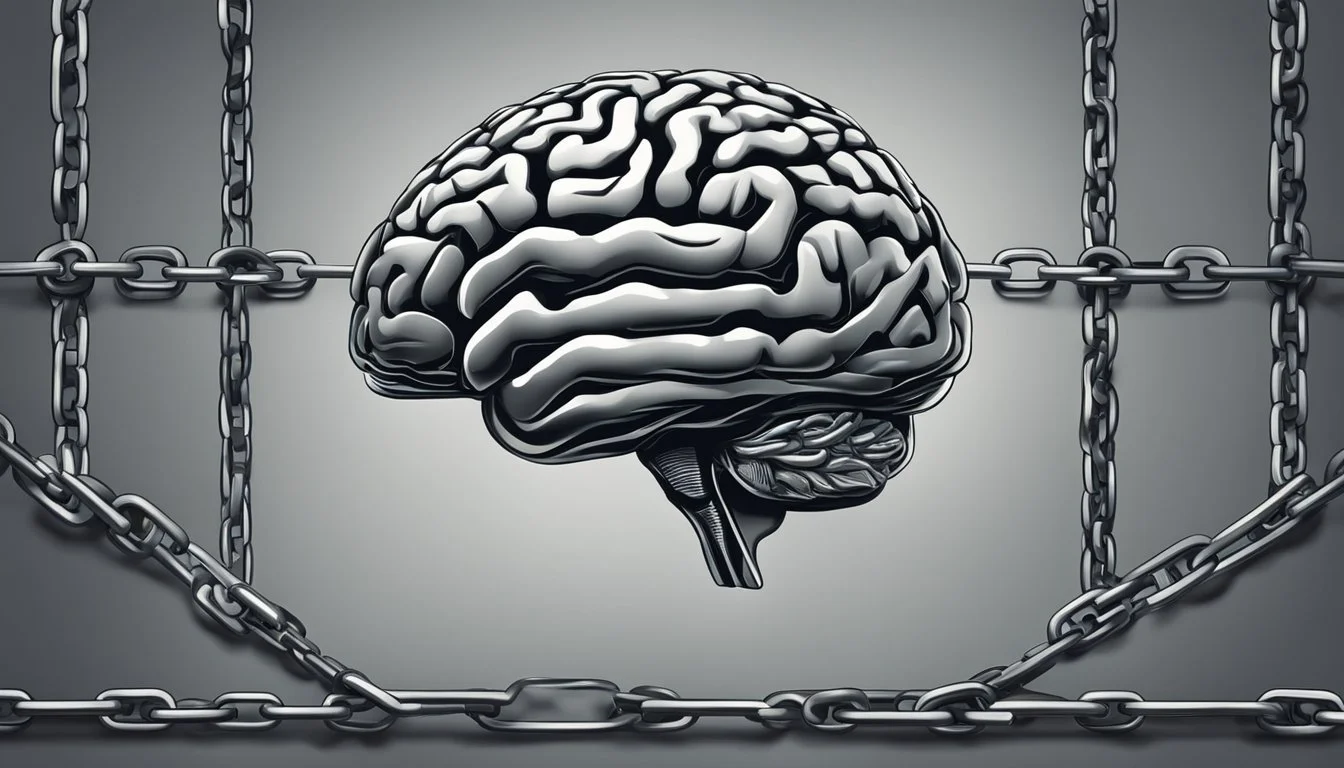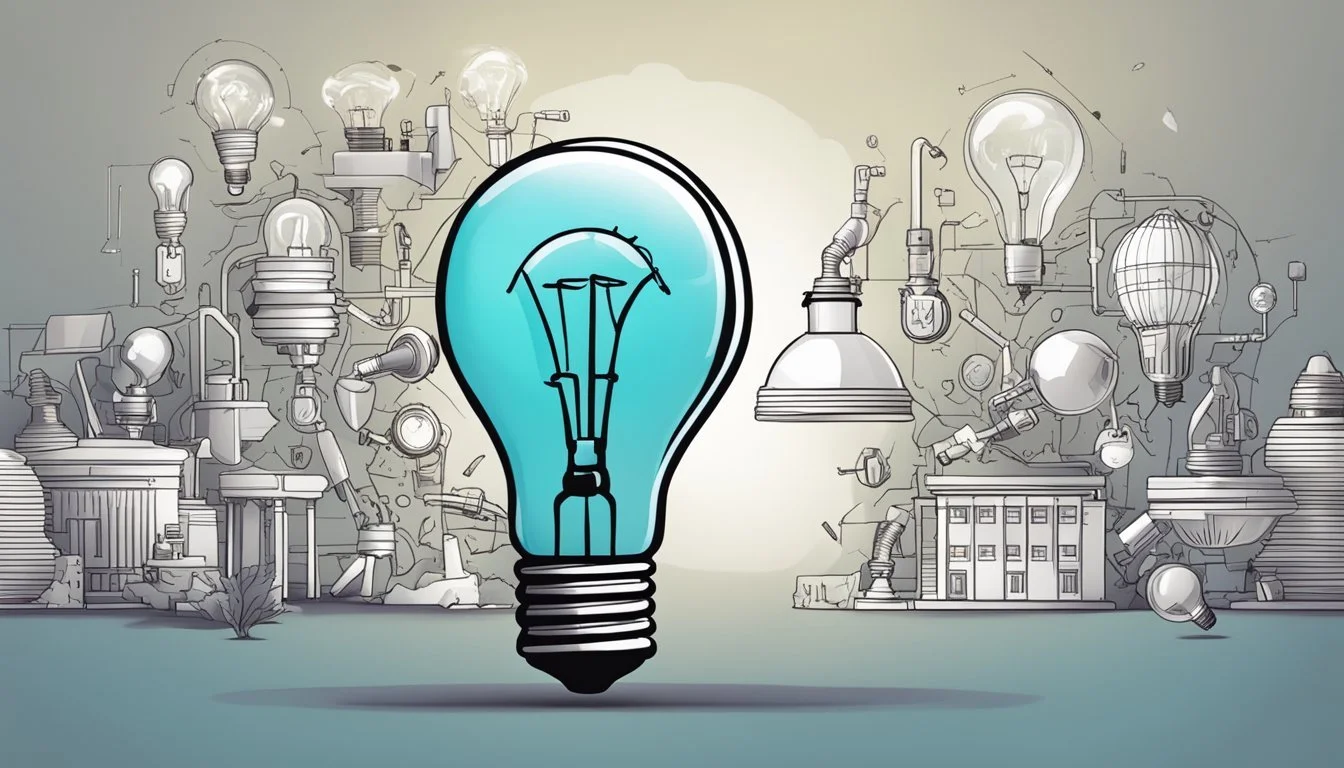7 Intelligence Myths That Hold People Back
Debunking Common Misconceptions
Intelligence myths can significantly impact how people perceive their own capabilities and potential. These misconceptions often lead individuals to underestimate themselves or limit their growth opportunities. By debunking these myths, people can unlock their true potential and overcome self-imposed barriers to success.
Many of these intelligence myths have persisted for years, influencing education systems, workplace dynamics, and personal development strategies. Recognizing and challenging these false beliefs is crucial for fostering a growth mindset and encouraging continuous learning. This article explores seven common intelligence myths that hold people back and provides insights to help readers break free from these limiting beliefs.
1) Intelligence is fixed and cannot change.
This common misconception suggests that a person's intellectual capacity is predetermined and unchangeable. However, research has shown that intelligence is not a static trait.
The human brain is highly adaptable and can form new neural connections throughout life. This neuroplasticity allows for cognitive growth and development well into adulthood.
Studies have demonstrated that various factors can influence intelligence, including education, environment, and life experiences. Engaging in mentally stimulating activities and learning new skills can enhance cognitive abilities.
IQ scores, often used to measure intelligence, are not constant over time. Individuals may see fluctuations in their scores due to factors such as age, testing conditions, and personal circumstances.
The belief in fixed intelligence can be harmful, as it may discourage people from pursuing educational opportunities or seeking personal growth. Embracing a growth mindset allows individuals to recognize their potential for intellectual development.
Genetic factors do play a role in cognitive abilities, but they do not solely determine intelligence. Environmental influences and personal effort also contribute significantly to intellectual growth.
2) "IQ tests measure all types of intelligence." - Dr. Jane Doe
IQ tests primarily assess cognitive abilities like logical reasoning, pattern recognition, and problem-solving. These tests focus on specific aspects of intelligence, particularly analytical and mathematical skills.
However, they do not capture the full spectrum of human intelligence. Emotional intelligence, creativity, and social skills are examples of important capabilities that IQ tests typically do not measure.
Howard Gardner's theory of multiple intelligences proposes several distinct types, including musical, bodily-kinesthetic, and naturalistic intelligence. These diverse forms of intelligence are not evaluated by standard IQ assessments.
Critics argue that IQ tests have cultural biases and may not accurately reflect the intelligence of individuals from different backgrounds. Some researchers suggest that practical intelligence, which involves adapting to real-world situations, is also overlooked by traditional IQ measures.
While IQ tests provide valuable insights into certain cognitive abilities, they should not be considered a comprehensive measure of a person's overall intelligence or potential. A more holistic approach to assessing intelligence can offer a more accurate representation of an individual's capabilities.
3) People with high IQs are successful in all life aspects.
High IQ does not guarantee success across all areas of life. While intelligence can be an asset, it is not the sole determinant of achievement.
Many factors contribute to success, including emotional intelligence, social skills, motivation, and perseverance. These traits often play a more significant role in overall life satisfaction and accomplishment.
Research suggests that individuals with high IQs may excel in academic settings but can struggle in other areas. They may face challenges in personal relationships or practical decision-making.
Financial success is not always correlated with high intelligence. Factors such as networking abilities, risk-taking, and market understanding can be more influential in monetary achievements.
High IQ individuals may experience heightened worry and rumination, which can negatively impact mental well-being. This tendency to overthink can sometimes hinder progress and happiness.
Success is multifaceted and requires a balance of various skills and attributes. While intelligence is valuable, it is just one piece of the puzzle in achieving fulfillment across different life domains.
4) Only geniuses can innovate
The notion that innovation is reserved for geniuses is a widespread misconception. In reality, innovation is accessible to people from all walks of life and intellectual backgrounds.
While the media often spotlights exceptional individuals like Elon Musk or Steve Jobs, these stories can create a distorted view of innovation. The truth is that most breakthroughs result from collaborative efforts and incremental improvements rather than solitary strokes of genius.
Innovation is a skill that can be learned and developed over time. It often stems from curiosity, perseverance, and a willingness to challenge the status quo. Many successful innovations arise from diverse teams working together, combining different perspectives and expertise.
Companies and organizations that foster a culture of innovation encourage all employees to contribute ideas, regardless of their position or background. This inclusive approach recognizes that valuable insights can come from unexpected sources.
Creativity and problem-solving abilities are present in everyone to some degree. With the right environment, support, and mindset, individuals can enhance these skills and contribute to innovative solutions.
5) "Creativity and intelligence are the same." - Albert Einstein
This quote, often attributed to Albert Einstein, perpetuates a common misconception about intelligence and creativity. While these two traits can be related, they are distinct cognitive abilities.
Intelligence generally refers to problem-solving skills, logical reasoning, and the capacity to acquire and apply knowledge. Creativity, on the other hand, involves generating novel ideas, thinking outside the box, and producing original work.
Many highly intelligent individuals may not excel in creative pursuits, while some incredibly creative people might not score exceptionally high on traditional intelligence tests. This myth can hold people back by causing them to undervalue their creative abilities if they don't perceive themselves as highly intelligent, or vice versa.
Research has shown that while there can be some correlation between intelligence and creativity, they are separate constructs. Recognizing this distinction allows individuals to appreciate and develop both aspects of their cognitive abilities independently.
By understanding that intelligence and creativity are separate but complementary skills, people can focus on nurturing both aspects of their mental capabilities without feeling limited by perceived deficiencies in either area.
6) High intelligence equals better decision-making.
While high intelligence is often associated with superior decision-making, this connection is not as straightforward as commonly believed. Research suggests that very intelligent individuals do not necessarily make better choices in all situations.
Highly intelligent people may sometimes overthink problems, leading to analysis paralysis. This can result in delayed decisions or missed opportunities. Additionally, they may inject personal biases into their thought processes, potentially undermining objectivity.
Studies have shown that those with higher IQs tend to be quicker at solving simple tasks. However, when faced with complex problems, they often take more time to resolve them compared to individuals with lower IQs.
Environment, continuous learning, and emotional growth play significant roles in decision-making abilities. These factors can influence outcomes just as much as raw intelligence. Intelligent individuals who lack emotional intelligence or practical experience may struggle with certain types of decisions.
Ultimately, effective decision-making relies on a combination of factors, including intelligence, experience, emotional awareness, and the ability to consider multiple perspectives. High intelligence alone does not guarantee superior choices in all aspects of life.
7) "Smart people don't need help." - Anonymous
This myth perpetuates the false notion that intelligence equates to self-sufficiency in all areas. In reality, even the brightest individuals benefit from collaboration and assistance.
Smart people often recognize the value of seeking help. They understand that knowledge is vast and no single person can master everything. Seeking input from others allows for diverse perspectives and innovative solutions.
Successful individuals frequently attribute their achievements to mentors, colleagues, and support networks. They leverage the expertise of others to complement their own skills and knowledge.
Asking for help demonstrates emotional intelligence and self-awareness. It shows an understanding of one's limitations and a willingness to learn and grow.
In professional settings, teamwork and collaboration are essential. Smart people who embrace these principles often outperform those who try to go it alone.
The ability to seek and accept help is a strength, not a weakness. It enables continuous learning and personal development, regardless of one's intelligence level.
Understanding Intelligence
Intelligence involves complex cognitive abilities that allow humans to reason, learn, and solve problems. It has biological underpinnings but manifests in diverse ways across individuals.
Biological Basis of Intelligence
Intelligence has genetic and neurobiological components. Twin studies suggest heritability of around 50-80% for general cognitive ability. Brain structure and function play key roles, with areas like the prefrontal cortex linked to reasoning and working memory.
Neurotransmitters like dopamine impact cognitive performance. Brain plasticity allows intelligence to be shaped by environmental factors. Nutrition, stress levels, and early childhood experiences affect neural development.
Recent research explores how gene-environment interactions influence intelligence over the lifespan. Epigenetic mechanisms may mediate these complex relationships between genes, environment, and cognitive abilities.
Different Types of Intelligence
Intelligence takes multiple forms beyond traditional IQ measures. Howard Gardner proposed eight distinct intelligences:
Linguistic
Logical-mathematical
Spatial
Musical
Bodily-kinesthetic
Interpersonal
Intrapersonal
Naturalistic
Emotional intelligence involves perceiving and managing emotions. It correlates with work performance and leadership ability.
Practical intelligence applies knowledge to real-world situations. It often diverges from academic intelligence measured by IQ tests. Cultural intelligence enables effective functioning across diverse settings.
Fluid intelligence involves abstract reasoning and novel problem-solving. Crystallized intelligence draws on accumulated knowledge and experience.
Impact of Intelligence Myths
Intelligence myths can profoundly shape individuals' self-perceptions and educational experiences. These misconceptions often lead to self-limiting beliefs and misguided educational approaches.
Effect on Personal Growth
Intelligence myths can significantly hinder personal development. Many people believe intelligence is fixed, leading to a reluctance to tackle challenging tasks. This mindset can result in missed opportunities for growth and skill acquisition.
Some individuals may avoid certain fields or careers due to misconceptions about innate abilities. For example, someone might shy away from STEM subjects, believing they lack a "math gene."
These myths can also impact self-esteem and confidence. People who believe they're not "naturally smart" may experience increased anxiety and lowered performance in various areas of life.
Educational Consequences
In educational settings, intelligence myths can lead to ineffective teaching strategies and unfair student evaluations. Teachers who believe intelligence is fixed may provide less support to struggling students, assuming they can't improve.
These misconceptions often result in over-reliance on standardized tests as measures of intelligence. This approach can neglect important aspects of cognitive ability and creativity.
Students labeled as "gifted" or "slow" based on these myths may receive inappropriate education. This can lead to underachievement in high-potential students or decreased motivation in those deemed less capable.
Addressing these myths in education is crucial for creating more inclusive and effective learning environments. It can help foster a growth mindset among students and educators alike.
Debunking Common Intelligence Myths
Intelligence myths can significantly impact how people view their own potential and that of others. Examining the role of genetics versus environment and understanding fixed versus growth mindsets are crucial for dispelling these misconceptions.
Role of Genetics vs. Environment
Genetics and environment both play important roles in shaping intelligence. Studies suggest that genetics account for about 50-80% of the variation in intelligence among individuals. However, environmental factors like nutrition, education, and stimulation are also crucial.
Epigenetics, which involves gene expression changes without altering DNA sequences, demonstrates how environment can influence genetic potential. Early childhood experiences and education quality can significantly impact cognitive development.
Socioeconomic status affects access to resources that foster intellectual growth. Children from disadvantaged backgrounds may face challenges in realizing their full cognitive potential due to limited educational opportunities or inadequate nutrition.
Fixed vs. Growth Mindset
A fixed mindset assumes intelligence is static, while a growth mindset believes it can be developed. Research shows that adopting a growth mindset leads to greater academic achievement and willingness to tackle challenges.
Students with a growth mindset tend to:
Embrace challenges
See effort as a path to mastery
Learn from criticism
Find inspiration in others' success
Encouraging a growth mindset in education can improve student motivation and performance. Teachers who promote effort over innate ability foster resilience and a love for learning in their students.
Neuroplasticity supports the growth mindset concept. The brain continues to form new neural connections throughout life, allowing for ongoing learning and skill development.





